Brand: ZCL
Product Origin: China
Delivery Time: 45-90 days
Supply Capacity: 50 units/month
Large high-voltage synchronous motors are ventilated by open natural ventilation or can be made into fully enclosed ducted ventilation.
High-voltage synchronous motor base: welded by steel plate, the lower part of the base is the outlet end of the motor.
The stator core of the synchronous motor is formed by stacking segments of 0.5 mm thick low-loss silicon steel sheet, and the core segments are separated by radial ducts; the windings are formed by double-stacked short-span coils, using Class B insulation or Class F insulation, temperature rise according to Class B assessment to facilitate extended service life; winding ends are reliably fixed and tied, and vacuum pressure impregnated solventless paint process (VIP) treatment, after multiple turns in the manufacturing process Withstand voltage and ground pressure test, the motor has excellent insulation performance, good mechanical strength and strong moisture resistance.
The rotor of a large synchronous motor: the magnetic pole is made of steel plate, and is mounted on the rotor yoke together with the magnetic pole coil. The magnetic pole coil is B-class or F-class insulation. When the user uses the pneumatic clutch, the rotary shaft design can be designed according to user requirements or The shaft is punched (the center is long and the through hole is blocked, the shaft end is blocked, the air head is installed on the shaft head, and the other end is processed as required, and the bolt hole is connected to the rotary joint of the air clutch).
Our large-scale high-voltage synchronous motor is a professional synchronous motor manufacturer based on years of R&D and production experience and the introduction of advanced manufacturing technology. The technical requirements of this series of motors, except those specified in the special technical conditions of the products, are in compliance with the IEC standards. The mechanical dimensions of each part of the motor are in accordance with the Chinese national standard GB1800-1804 and the ISO standard of the International Standardization Committee.
Click here to view more details about Synchronous generators.
The protection level of the large synchronous motor housing has IP00, IP20, IP21, IP23 and IP44 according to GB4942.1 and IEC34-5 "Motor enclosure protection level".
This series of synchronous motor cooling methods are based on GB1993 and IEC34-6 "Motor Cooling Method" standards, including IC01, IC27, IC37, IC81W, and IC91W. The basic installation method of the motor complies with the provisions of GB997 and IEC34-7 "Motor Structure and Installation Type Code". If the user needs other protection levels, cooling methods, and installation methods, they can be negotiated separately.
The direction of rotation of the motor is clockwise from the end of the shaft. The motor allows direct starting at full pressure. The motor housing protection type is heavy straight anti-drip type, and can also be other forms. According to user requirements, the ventilation form of the motor can be ventilated or reversed (wind inlet).
The front and rear bearings of the large synchronous motor adopt a seat type sliding bearing, and the bearing is equipped with a pressure thermometer and a transparent cover for oil filling. Check holes for easy oil filling and oil mist spillage. The slip ring assembled by the motor is fixed to the non-axial extension end of the main shaft and is coaxial with the main shaft. The jump is small and easy to overhaul. The slip ring brush holder is fixed to the seat block of the non-shaft end. Motor bearings, winding temperature measurement and heating devices can also be added according to customer requirements.
Excitation mode: This series of motor excitation system uses thyristor excitation device.
The stator core is formed by laminating silicon steel sheets of 0.5 mm, and the stator core is fixed on the frame by a tensioning screw.
Stator coil: The coil is a stack winding, which is insulated by F pole and has anti-corona measures. The ends of the coils are securely fastened and treated with an integral VPI vacuum dipping finish.
Magnetic pole: a magnetic pole punch punched from a thin steel plate is laminated, and a magnetic pole core jacket is a magnetic pole coil. The entire magnetic pole is mounted on the yoke.
Magnetic pole coil: It is made of copper flat wire and is insulated by Class F insulation.
Product Name: Large high voltage synchronous motor
Rated voltage: 3000V, 6000V, 10000V, 13800v
Capacity range: 320 kW ~ 6300kW
Rated frequency: 50Hz, 60HZ
Cooling method: IC01, IC27, IC37, IC81W, IC91W
Quota: S1
Synchronous speed: 150-1500r/min
Insulation class: Class F
Temperature rise level: B
Connection: Y
Protection level: IP00/IP21/IP23/IP44
Power factor: 0.9 (leading)
Excitation mode: static thyristor (other excitation methods can also be made)
The guaranteed value of the ratio of out-of-step torque to rated torque at rated voltage is 1.7
The guaranteed value of the ratio of locked rotor torque to rated torque at rated voltage is 1.0.
The guaranteed value of the ratio of the torque to the rated torque at the rated voltage is 0.7.
The guaranteed value of the ratio of locked current to rated current at rated voltage is 7.0.
Mine synchronous motor use elevation: no more than 1000m, the motor can be installed according to the requirements of temperature measurement, heater, impact protection and other devices. The allowable voltage has a deviation range of ± 5%, because the power factor is ahead of the grid, which has a certain compensation effect on the grid. This type of motor is suitable for use in environments where the ambient air temperature does not exceed 40 ° C and there is no serious dust, the minimum ambient air temperature is -15 ° C, and there is no corrosive and explosive gas in the air (which can also be made into a damp heat or high-altitude motor).
High-voltage synchronous motors have large moment of inertia characteristics and are widely used in petroleum. Chemical, electric power and other industries are used to drive loads with large moments of inertia such as fans, pumps and compressors. This series of motors adopts new technology, new materials, new technology, colorful and exquisite, well-made, specific small size, light weight, high efficiency, low noise, low vibration, safe and reliable operation, convenient use and maintenance. The motor has an advanced power factor (which improves grid power factor), high efficiency, high stability and high overload capability, and has the performance that the speed does not change with load.
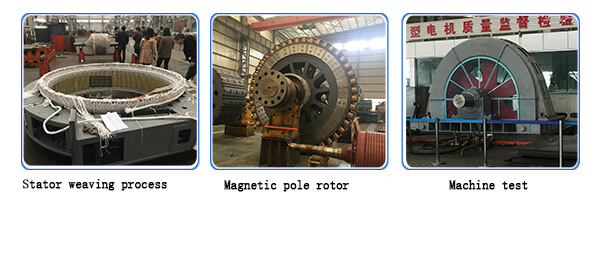
Advantages:
High torque at low speeds
Good power factor
Good speed control
Can be used as a generator
Disadvantages:
Large size and weight for high power applications
Requires AC power supply
High starting current
Poor efficiency at low loads
Can't be used with variable frequency drives.
1. Synchronous motor is a machine whose rotor speed and the speed of the stator magnetic field is equal. Asynchronous motor is a machine whose rotor rotates at the speed less than the synchronous speed.
2. Brushless motor, Variable Reluctance Motor, Switched Reluctance Motor and Hysteresis motor are the synchronous motor. AC Induction Motor is known as the Asynchronous Motor.
3. Synchronous motor does not have slip. The value of slip is zero. Asynchronous motor has slip therefore the value of slip is not equal to zero.
4. Synchronous motor requires an additional DC power source to initially rotate the rotor near to the synchronous speed. Asynchronous motor does not require any additional starting source.
5. Slip ring and brushes are required in synchronous motor, whereas Asynchronous motor does not require Slip ring and brushes. Only wound type Induction motor requires both slip ring and brushes.
6. Synchronous motor is costly as compared to Asynchronous motor.
7. Efficiency of Synchronous motor is greater than Asynchronous motor.
8. By changing excitation the power factor of the Synchronous motor can be adjusted accordingly as lagging, leading or unity, whereas Asynchronous motor runs only at a lagging power factor.
9. Current is given to the rotor of the synchronous motor. The rotor of Asynchronous motor does not require any current.
10. The Speed of the Synchronous motor does not depend on the variation in the load. It is constant. The Speed of the Asynchronous motor decreases with the increasing load.
11. Synchronous motor is not self starting, whereas Asynchronous is self starting.
12. Change in applied voltage does not affect the torque of the synchronous motor, whereas it affect the torque of the Asynchronous motor.
13. Synchronous motor operates smoothly and relatively good at low speed that is below 300 rpm, whereas above 600 rpm speed Asynchronous motor operation is excellent. Asynchronous motors are used in Centrifugal pumps and fans, blowers, paper and textile mills, compressors and lifts. etc
14. The various applications of the Synchronous motor are that it is used in Power stations, manufacturing industries etc. It is also used as voltage controller.
Difference Between Synchronous and Asynchronous Motor are explained below in the tabulated form.
| BASIS | SYNCHRONOUS MOTOR | ASYNCHRONOUS MOTOR |
|---|---|---|
| Type | Brushless motor, Variable Reluctance Motor, Switched Reluctance Motor and Hysteresis motor are the synchronous motor. | AC Induction Motor is known as the Asynchronous Motor. |
| Additional power source | It requires an additional DC power source to initially rotate the rotor near to the synchronous speed. | It does not require any additional starting source. |
| Cost | Synchronous motor is costly as compared to Asynchronous motor | Less costly |
| Power factor | By changing excitation the power factor can be adjusted accordingly as lagging, leading or unity. | Asynchronous motor runs only at a lagging power factor. |
| Speed | The Speed of the motor does not depend on the variation in the load. It is constant. | The Speed of the Asynchronous motor decreases with the increasing load. |
| Affect in torque | Change in applied voltage does not affect the torque of the synchronous motor | Change in applied voltage does affect the torque of the Asynchronous motor |
| Applications | Synchronous motors are used in Power stations, manufacturing industries etc. it is also used as voltage controller. | Used in Centrifugal pumps and fans, blowers, paper and textile mills, compressors and lifts. etc |
The company insists on providing high-quality motor products and services to users, and has won high praise from many domestic and foreign customers. The company will receive many foreign merchants to visit our factory every year, and establish a good cooperative relationship through on-site inspection of our factory. Our company always welcomes customers to visit our factory.
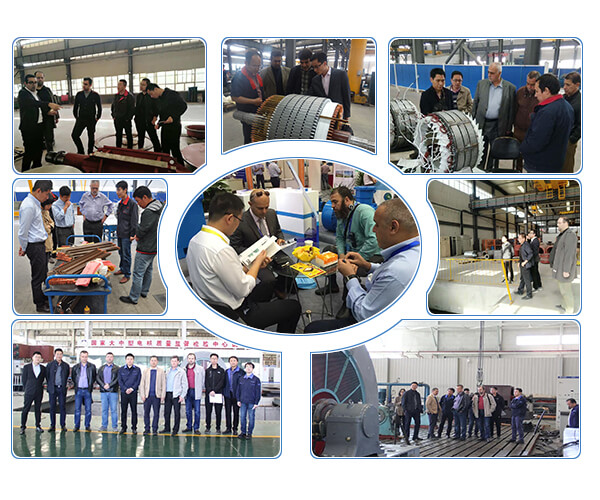
The motor products manufactured by our company have obtained the ISO9001 quality management management system certification, passed the CCC/COC, China energy-saving product certification, and passed the certification certificates of CE/UL/IRIS/CAS and other European and American countries. The company strictly improves the quality and efficient motor products and services for users in strict accordance with the requirements of relevant product standards.
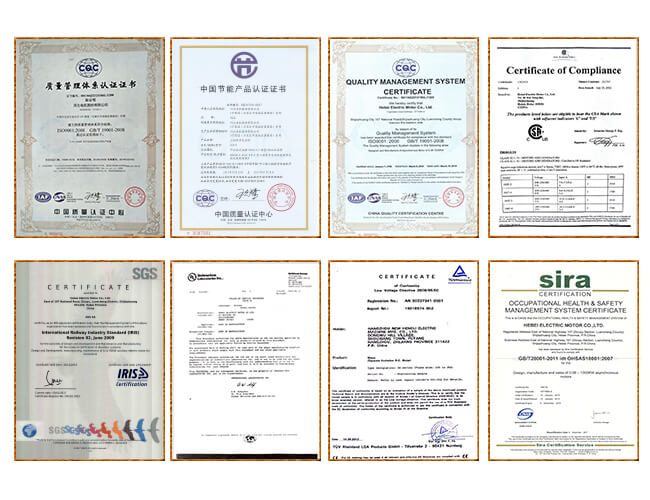
The Synchronous generator products manufactured and sold by our company are used in many industries, such as electric power, mining, steel metallurgy, petrochemical, water conservancy, transportation, building materials and many other industries. The equipment for the motor is pump, machine tool, fan, mill, crusher, rolling mill, compressor and many other industrial equipment.
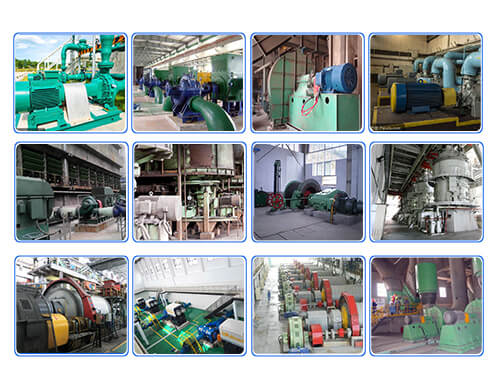
1. Professional motor manufacturing service provider;
2. Sound product quality management and certification system;
3. Have a professional sales and technical service team;
4. The motor has perfect process and strong mechanical processing capability;
5. High standard product technical service system;
6. Good faith and mutual benefit, good credit guarantee.
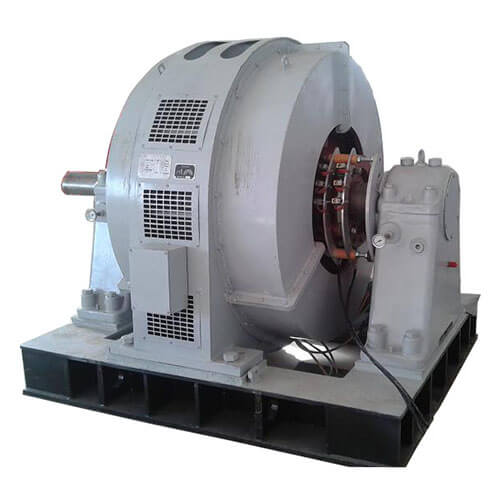 Synchronous Motors for Air Separation Applications
TK series three-phase synchronous motor is a high-voltage synchronous motor specially designed for air compressors, mainly used in refrigeration and fertilizer industry equipment.
Synchronous Motors for Air Separation Applications
TK series three-phase synchronous motor is a high-voltage synchronous motor specially designed for air compressors, mainly used in refrigeration and fertilizer industry equipment.
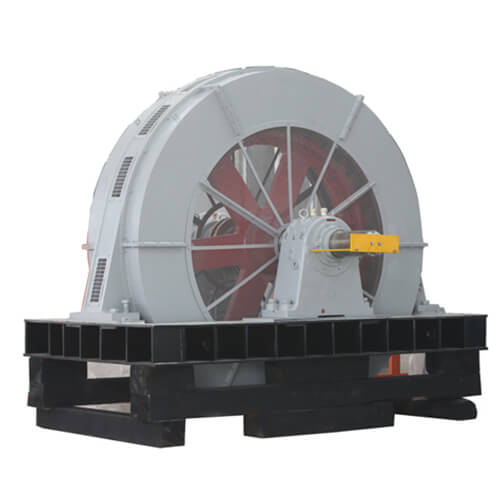 Synchronous Motors for Mining Applications
Large-scale synchronous motor ventilation for mines is open-type natural ventilation or can be made into fully enclosed pipeline ventilation.
Synchronous Motors for Mining Applications
Large-scale synchronous motor ventilation for mines is open-type natural ventilation or can be made into fully enclosed pipeline ventilation.
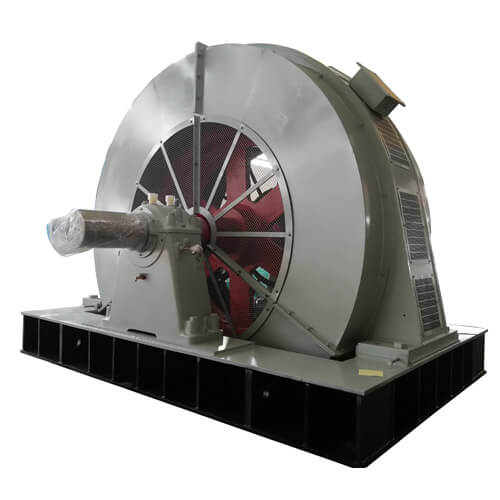 Synchronous Motor Manufacturer
Large high-voltage synchronous motors are ventilated by open natural ventilation or can be made into fully enclosed ducted ventilation.
Synchronous Motor Manufacturer
Large high-voltage synchronous motors are ventilated by open natural ventilation or can be made into fully enclosed ducted ventilation.
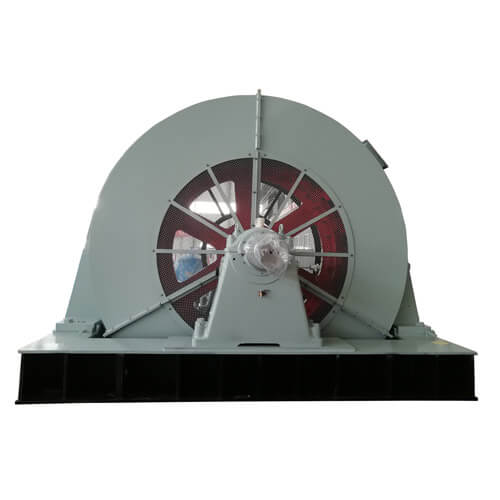 187.5RPM 400KW Synchronous Motor
The 32-pole mine TDMK synchronous motor ventilation mode is open natural ventilation or can be made into a fully enclosed pipeline ventilation type.
187.5RPM 400KW Synchronous Motor
The 32-pole mine TDMK synchronous motor ventilation mode is open natural ventilation or can be made into a fully enclosed pipeline ventilation type.
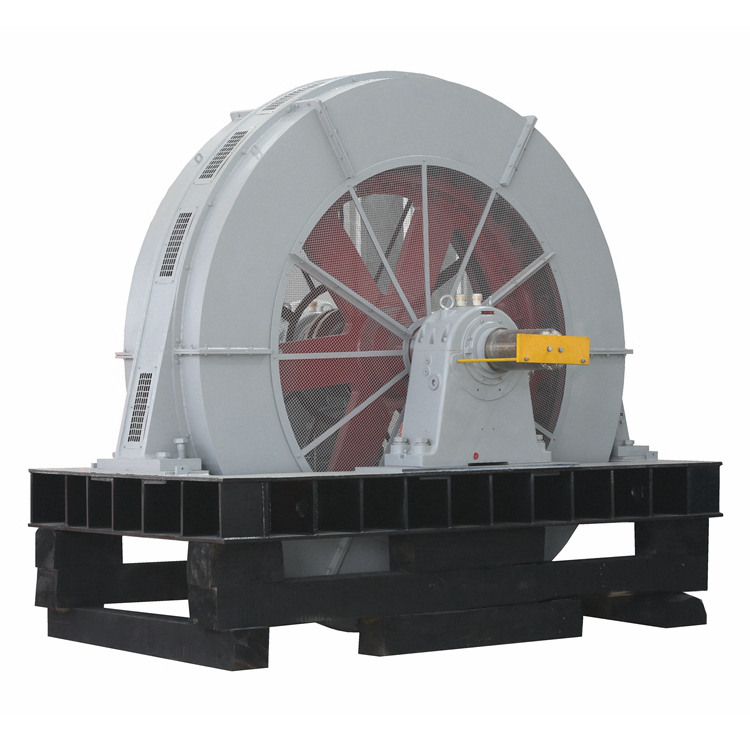 Large Synchronous Excitation Electric Motor
The large synchronous motor is a horizontal three-phase salient-pole synchronous motor. The installation method of the motor is horizontal installation. The outer casing of the motor has a circular structure, the protection grade is IP20, and the cooling mode is open ventilation cooling.
Large Synchronous Excitation Electric Motor
The large synchronous motor is a horizontal three-phase salient-pole synchronous motor. The installation method of the motor is horizontal installation. The outer casing of the motor has a circular structure, the protection grade is IP20, and the cooling mode is open ventilation cooling.
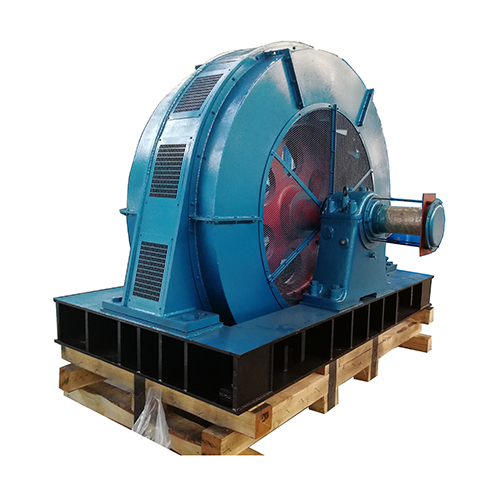 TDMK large synchronous slip ring motor for ball mill
This series of ball mill synchronous motor is mainly suitable for large AC three-phase synchronous motor used in transmission mine mill. The main transmission lattice ball mill, rod mill, coal mill mining equipment.
TDMK large synchronous slip ring motor for ball mill
This series of ball mill synchronous motor is mainly suitable for large AC three-phase synchronous motor used in transmission mine mill. The main transmission lattice ball mill, rod mill, coal mill mining equipment.
Copyright © ZCL Electric Motor Technology Co., Ltd. All Rights Reserved | Sitemap | Powered by 